"Winning
this scholarship has not only lifted my financial burden, but brought
smiles to my family," Avrum Gudelsky Memorial Award winner William Shaw
said Wednesday (October 25) at the university's annual Scholarship
Appreciation Breakfast.
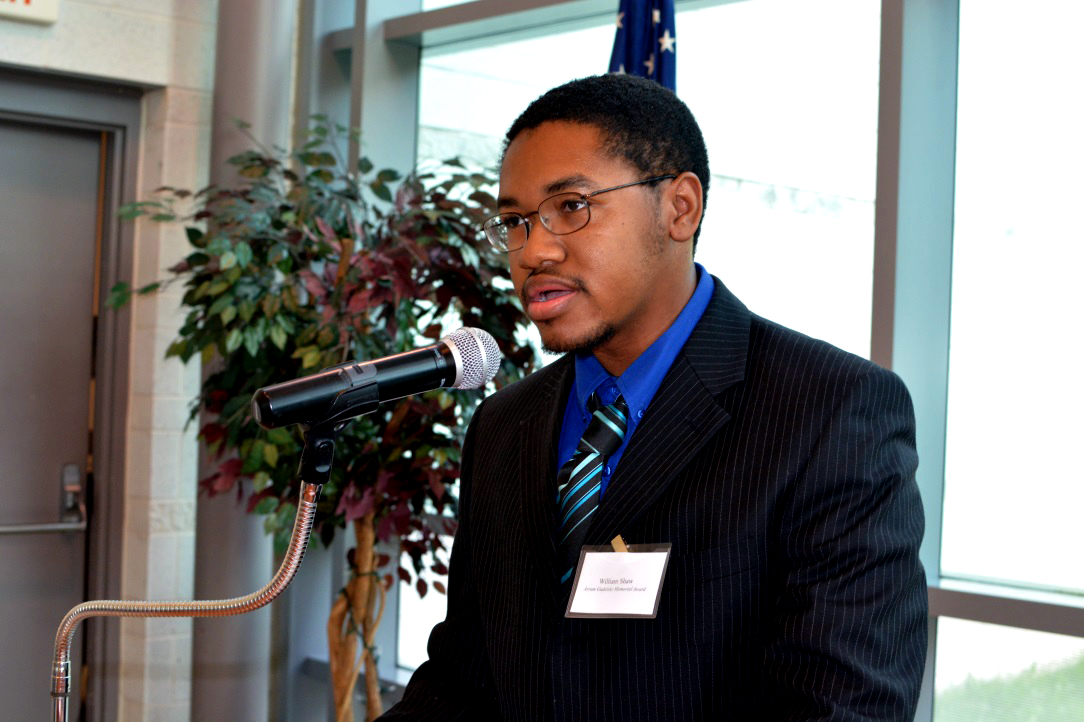 Shaw
is one of 55 Capitol students who have been awarded a wide variety of
scholarships for 2017-18. Many were at the breakfast event, which gives
scholarship winners an opportunity to meet and mingle with benefactors,
trustees, faculty, and administration.
Shaw
is one of 55 Capitol students who have been awarded a wide variety of
scholarships for 2017-18. Many were at the breakfast event, which gives
scholarship winners an opportunity to meet and mingle with benefactors,
trustees, faculty, and administration.
A senior majoring in computer science, Shaw chose Capitol for his university degree after getting to know the university while a high school student at Charles Flowers High School, which has an ongoing student internship program with Capitol. His experiences at Capitol have helped him develop his computer science skills to the point where he has been able to mentor others, Shaw said.
"Instead of me going to people for help, people have started coming to me for help," Shaw noted.
Capitol's new president, Dr. Bradford L. Sims, was on hand to thank benefactors and highlight the essential role they play in sustaining the life of the university and helping students achieve their academic goals.
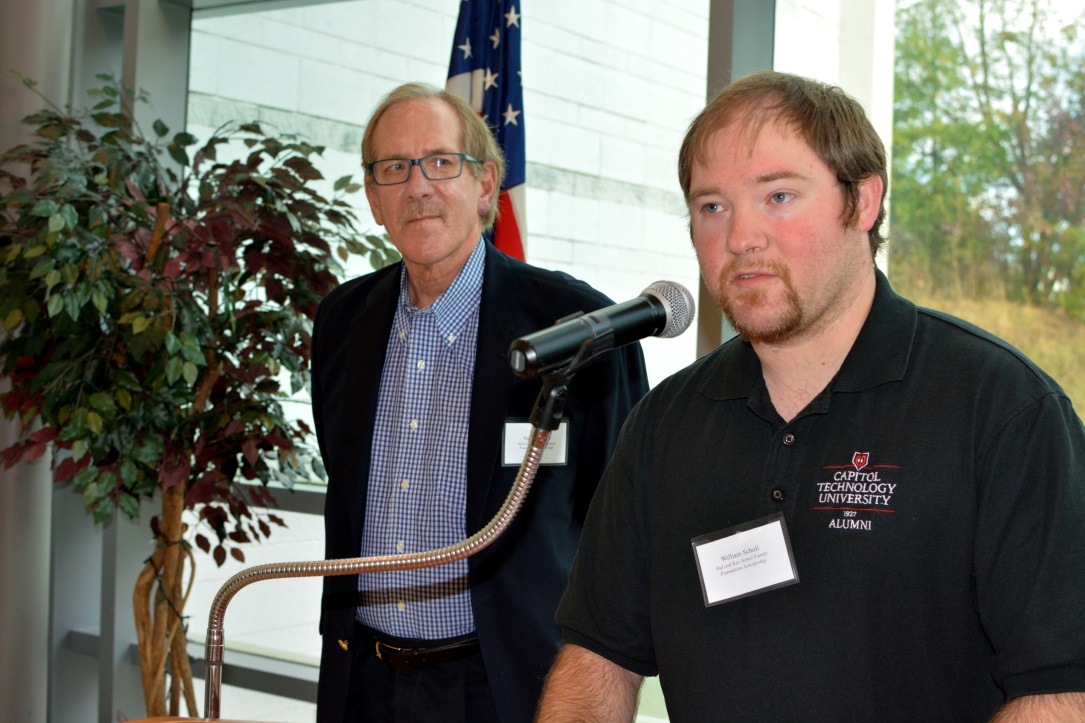 The
event also featured a keynote address by Thomas Scholl, a technology
entrepreneur and inventor who founded the Hal and Kay Scholl Family
Foundation Scholarship in honor of his parents. He spoke of Capitol's
unique attributes as a university, describing it as a "gem" in the DC
metro area.
The
event also featured a keynote address by Thomas Scholl, a technology
entrepreneur and inventor who founded the Hal and Kay Scholl Family
Foundation Scholarship in honor of his parents. He spoke of Capitol's
unique attributes as a university, describing it as a "gem" in the DC
metro area.
"As a student, if you want to get a degree in engineering, technology, computer science, or cybersecurity, it turns out your choices are actually quite limited when you take everything into account: location, school size, tuition, curriculum, on/near campus living, online/in-class courses, and so on." When all these factors are taken into consideration, Capitol "comes out very favorably and often at the top," Scholl said.
Scholl's son William, who received his B.S. in cyber and information security from Capitol in 2015, then took the podium to describe some of the reasons he chose the Laurel-based university for his degree.
"When I first visited Capitol I came to realize it was the place for me. The things I liked most were the fact that it was close to home, I could study in my dorm room without distraction, and the environment was centered around people helping me succeed,” he said.
The Scholarship Appreciation Breakfast, held each year in the fall, honors the hard work of Capitol’s scholarship recipients and the generosity of those who make the scholarship opportunities possible.
Capitol is the only independent university in Maryland with a specialized focus on engineering and technology. Undergraduate programs offered at the university include astronautical engineering, computer engineering, computer science, electrical engineering, and cyber and information security. The university offers a wide range of scholarships, including the Avrum Gudelsky and Homer Gudelsky memorial awards, given each year to students who have earned high academic distinction.
For more information on how you can support Capitol students through donations and scholarships, contact Melinda Bunnell-Rhyne, assistant vice president for student engagement and university development, at mabunnell-rhyne@captechu.edu.
 Shaw
is one of 55 Capitol students who have been awarded a wide variety of
scholarships for 2017-18. Many were at the breakfast event, which gives
scholarship winners an opportunity to meet and mingle with benefactors,
trustees, faculty, and administration.
Shaw
is one of 55 Capitol students who have been awarded a wide variety of
scholarships for 2017-18. Many were at the breakfast event, which gives
scholarship winners an opportunity to meet and mingle with benefactors,
trustees, faculty, and administration.A senior majoring in computer science, Shaw chose Capitol for his university degree after getting to know the university while a high school student at Charles Flowers High School, which has an ongoing student internship program with Capitol. His experiences at Capitol have helped him develop his computer science skills to the point where he has been able to mentor others, Shaw said.
"Instead of me going to people for help, people have started coming to me for help," Shaw noted.
Capitol's new president, Dr. Bradford L. Sims, was on hand to thank benefactors and highlight the essential role they play in sustaining the life of the university and helping students achieve their academic goals.
 The
event also featured a keynote address by Thomas Scholl, a technology
entrepreneur and inventor who founded the Hal and Kay Scholl Family
Foundation Scholarship in honor of his parents. He spoke of Capitol's
unique attributes as a university, describing it as a "gem" in the DC
metro area.
The
event also featured a keynote address by Thomas Scholl, a technology
entrepreneur and inventor who founded the Hal and Kay Scholl Family
Foundation Scholarship in honor of his parents. He spoke of Capitol's
unique attributes as a university, describing it as a "gem" in the DC
metro area."As a student, if you want to get a degree in engineering, technology, computer science, or cybersecurity, it turns out your choices are actually quite limited when you take everything into account: location, school size, tuition, curriculum, on/near campus living, online/in-class courses, and so on." When all these factors are taken into consideration, Capitol "comes out very favorably and often at the top," Scholl said.
Scholl's son William, who received his B.S. in cyber and information security from Capitol in 2015, then took the podium to describe some of the reasons he chose the Laurel-based university for his degree.
"When I first visited Capitol I came to realize it was the place for me. The things I liked most were the fact that it was close to home, I could study in my dorm room without distraction, and the environment was centered around people helping me succeed,” he said.
The Scholarship Appreciation Breakfast, held each year in the fall, honors the hard work of Capitol’s scholarship recipients and the generosity of those who make the scholarship opportunities possible.
Capitol is the only independent university in Maryland with a specialized focus on engineering and technology. Undergraduate programs offered at the university include astronautical engineering, computer engineering, computer science, electrical engineering, and cyber and information security. The university offers a wide range of scholarships, including the Avrum Gudelsky and Homer Gudelsky memorial awards, given each year to students who have earned high academic distinction.
For more information on how you can support Capitol students through donations and scholarships, contact Melinda Bunnell-Rhyne, assistant vice president for student engagement and university development, at mabunnell-rhyne@captechu.edu.
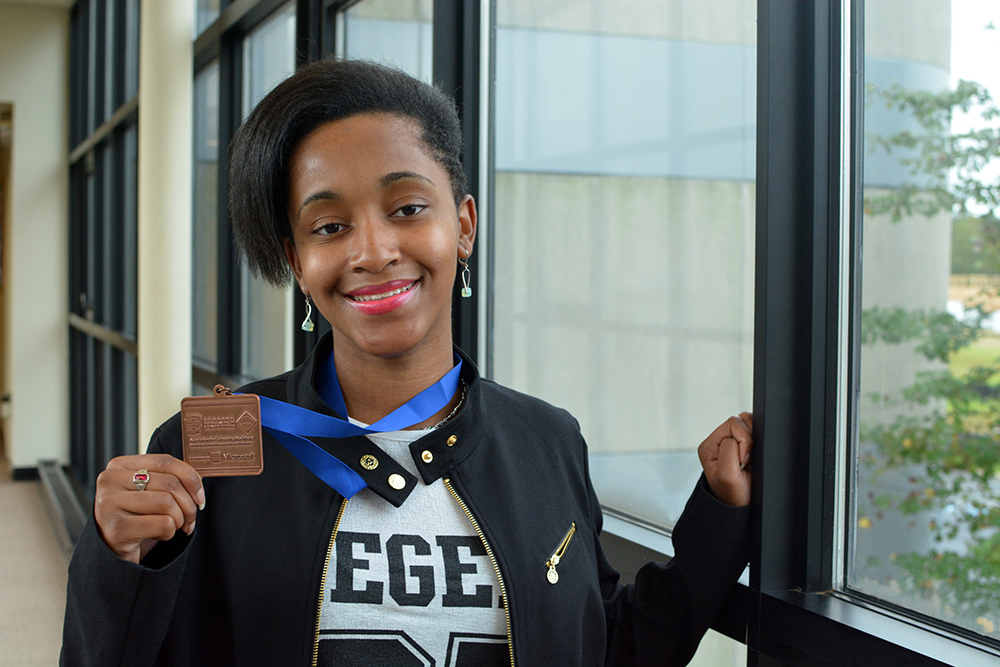 The
internationally recognized competition, held each year in conjunction
with the Grace Hopper event, offers undergraduate and graduate students
an opportunity to present their original research during a poster
session. A panel of judges selects three undergraduate students and
three graduate students as the winners, awarding cash prizes to each.
The
internationally recognized competition, held each year in conjunction
with the Grace Hopper event, offers undergraduate and graduate students
an opportunity to present their original research during a poster
session. A panel of judges selects three undergraduate students and
three graduate students as the winners, awarding cash prizes to each.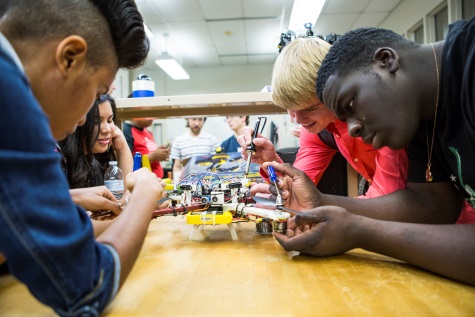 Capitol
Technology University is among six schools highlighted by ABET in the
document, which explores “effective and flexible engineering programs
that cultivate skilled, confident and career-ready graduates.”
Capitol
Technology University is among six schools highlighted by ABET in the
document, which explores “effective and flexible engineering programs
that cultivate skilled, confident and career-ready graduates.”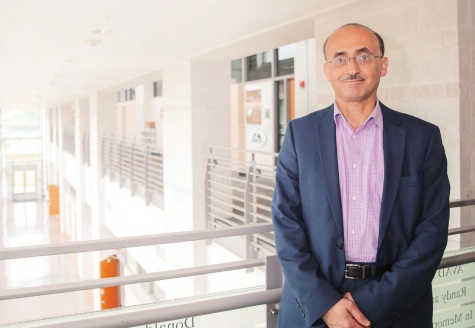 “The
delivery of STEM curriculum in the age-old tradition of higher
education is no longer effective for the business needs of today and
tomorrow,” says ABET Executive Director and CEO Michael Milligan. “If we
will meet the current and future demands for dynamic engineering
talent, colleges and universities must rethink the role of engineers in
our society and offer curriculum that prepares them to meet and overcome
the challenges confronting the world today and tomorrow.”
“The
delivery of STEM curriculum in the age-old tradition of higher
education is no longer effective for the business needs of today and
tomorrow,” says ABET Executive Director and CEO Michael Milligan. “If we
will meet the current and future demands for dynamic engineering
talent, colleges and universities must rethink the role of engineers in
our society and offer curriculum that prepares them to meet and overcome
the challenges confronting the world today and tomorrow.”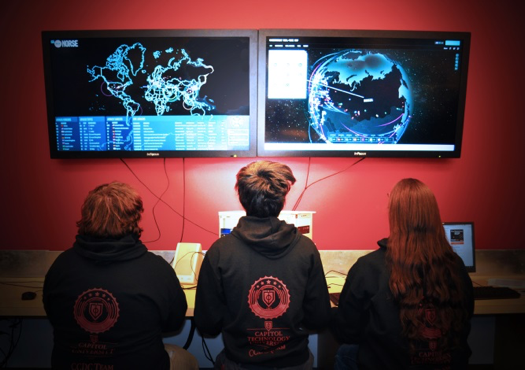 The
university’s Cyber Lab, designed to help create a pipeline for
cybersecurity expertise in the region, enables students to simulate,
detect, analyze, and combat a wide range of cyber threats. After
familiarizing themselves with cybersecurity concepts and principles
during their classes, students can amplify what they’ve learned through
hands-on activities in the lab.
The
university’s Cyber Lab, designed to help create a pipeline for
cybersecurity expertise in the region, enables students to simulate,
detect, analyze, and combat a wide range of cyber threats. After
familiarizing themselves with cybersecurity concepts and principles
during their classes, students can amplify what they’ve learned through
hands-on activities in the lab.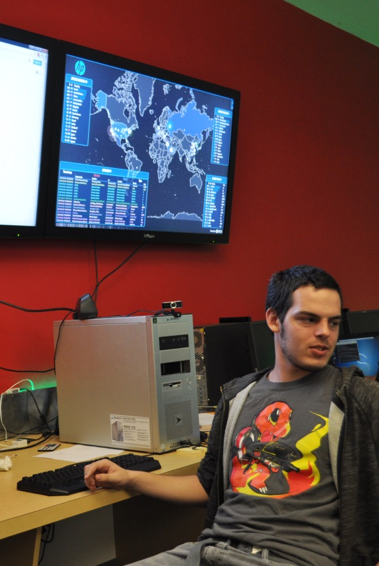
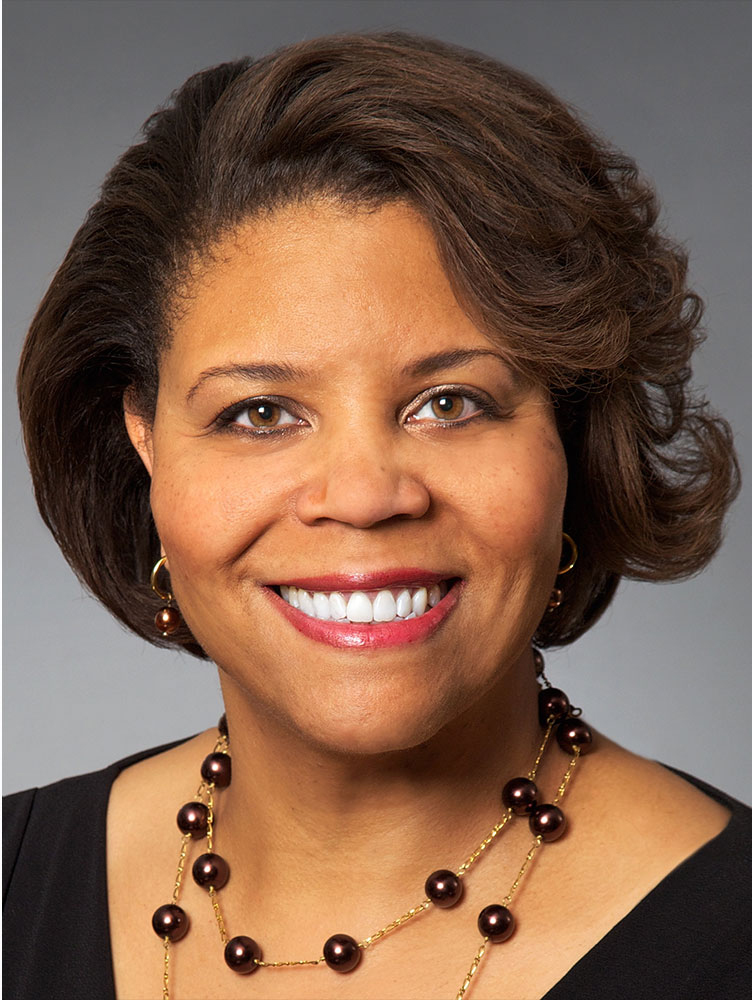 Dr. Diana Burley is a nationally known cybersecurity educator and speaker. Dr. William Butler, Chair of the
Dr. Diana Burley is a nationally known cybersecurity educator and speaker. Dr. William Butler, Chair of the Sound
like sci-fi fantasy? Once, it would have been. Now it is becoming
reality, as a result of brain machine interfaces (BMI) – an emerging
field of technological research that is generating intense interest.
Capitol Technology University, home to one of the nation’s most highly
regarded cybersecurity programs, will be providing an opportunity for
young people to learn about brain machine interfaces and even to try
them out for themselves.
Sound
like sci-fi fantasy? Once, it would have been. Now it is becoming
reality, as a result of brain machine interfaces (BMI) – an emerging
field of technological research that is generating intense interest.
Capitol Technology University, home to one of the nation’s most highly
regarded cybersecurity programs, will be providing an opportunity for
young people to learn about brain machine interfaces and even to try
them out for themselves.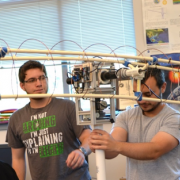 Visit the
Visit the 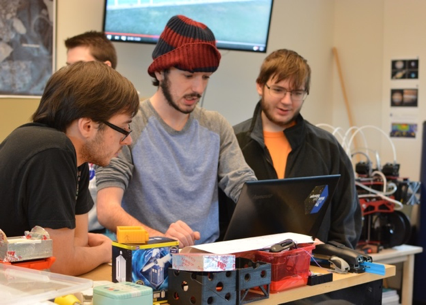 The
Fusion Lab is part of an endeavor at Capitol to provide students with a
different kind of educational experience, one that is less
compartmentalized and more reflective of real-world conditions. Through
the lab and other facilities, as well as through cross-curricular
courses and activities, the university has made collaboration across
disciplines part of its institutional culture.
The
Fusion Lab is part of an endeavor at Capitol to provide students with a
different kind of educational experience, one that is less
compartmentalized and more reflective of real-world conditions. Through
the lab and other facilities, as well as through cross-curricular
courses and activities, the university has made collaboration across
disciplines part of its institutional culture.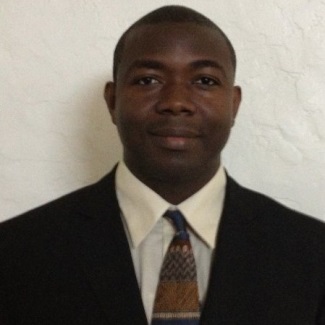 The
award “gives me the opportunity to do cybersecurity research, which I
love with a passion,” Onwulata says. It’s a critical field nowadays, he
adds, because of “the current situation, where a lot of systems are
being hacked due to inadequate protections and controls.”
The
award “gives me the opportunity to do cybersecurity research, which I
love with a passion,” Onwulata says. It’s a critical field nowadays, he
adds, because of “the current situation, where a lot of systems are
being hacked due to inadequate protections and controls.”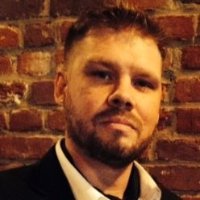 “It’s
an investment by the American people in their own security. America is
investing in me by ensuring I can gain the best education I can in order
to defend our nation,” Nelbach said.
“It’s
an investment by the American people in their own security. America is
investing in me by ensuring I can gain the best education I can in order
to defend our nation,” Nelbach said.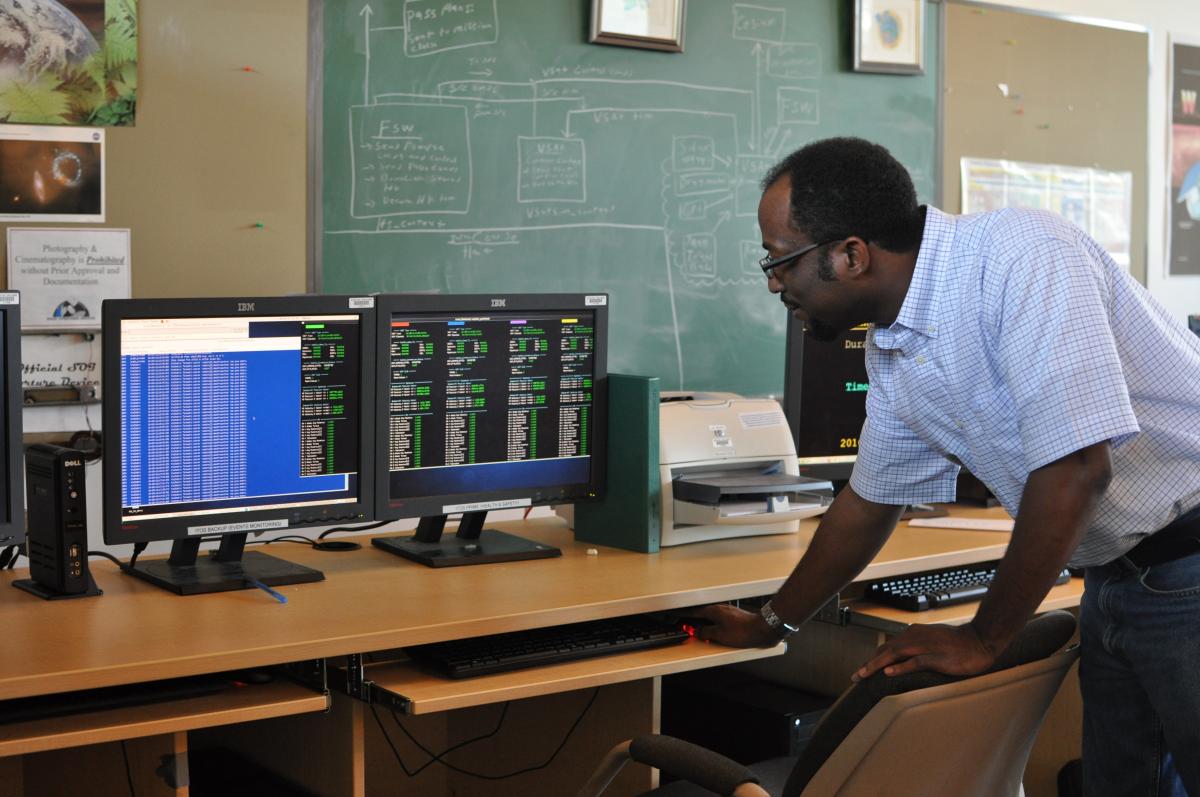 With the help of the
With the help of the